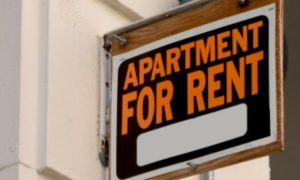When George Lucas tried to expand his production company studios in California’s wealthy Marin County, the community pushed back. Then the “Star Wars” creator wanted to sell the land to a developer who would build affordable housing.
“It’s inciting class warfare,” Carolyn Lenert, then head of the North San Rafael Coalition of Residents, told The New York Times at the time.
Now, two years after that project stalled, Lucas has decided to build the affordable housing and pay for it all himself.
“We’ve got enough millionaires here. What we need is some houses for regular working people,” Lucas said through his lawyer Gary Giacomini, CBS affiliate KCBS reported.
The 224-unit affordable housing complex would go on Grady Ranch, where his once-planned studio expansion would have been, according to a plan being submitted to the Marin County Development Agency this week, the Contra Costa Times reported. The plan, which would allow development on 52 acres, includes workforce and senior residences, as well as a community center, pool and an orchard.
Income requirements could be set so eligible residents had to make less than 80 percent of the area’s median income, the paper reported. The median household income for Marin County is $90,839, according to U.S. Census Bureau estimates.
Lucas first bought land in Marin in 1978 and dubbed the property Skywalker Ranch.
Before Lucas sold his production company Lucasfilms to Disney, he abandoned plans in 2012 for a third studio expansion on another ranch in Marin called Grady. Residents had opposed the project, citing environmental and traffic concerns, and threatened to sue. The studio expansion would “pose a serious and alarming threat to the nature of our valley and our community,” a homeowners’ association warned, the Times reported.
“We love working and living in Marin, but the residents of Lucas Valley have fought this project for 25 years, and enough is enough,” Lucasfilms had said in a statement. “We have several opportunities to build the production stages in communities that see us as a creative asset, not as an evil empire.”
Lucas then tried to build affordable housing on the site, which once again stoked concern among some residents. The people who had opposed the studio expansion were being blamed for the possibility of low-income housing coming to a wealthy community.
“We got letters saying, ‘You guys are going to get what you deserve. You’re going to bring drug dealers, all this crime and lowlife in here,’ ” Carl Fricke, a board member of the Lucas Valley Estates Homeowners Association, told the Times in 2012.
The initiative did have supporters, including some residents and officials. But then it lost key financial backing in 2013. Costs for the project had been estimated at $120 million to $150 million at the time.
Now Lucas has decided to bankroll the project himself. “George Lucas said, ‘If I’m not going to do what I wanted to do there, what can I do that would be really beneficial to this community?’” Marin County Supervisor Steve Kinsey told KCBS.
While it’s tempting to cast this latest venture as Lucas striking back at his millionaire neighbors, he has previously rejected that characterization. When Lucas first tried to build affordable housing on the land, he had told the Times, “I’ve been surprised to see some people characterize this as vindictive.”
He had also emphasized the need for affordable housing in the county, so that people with moderate incomes who worked in Marin could also live there. “I wouldn’t waste my time or money just to try and upset the neighbors,” Lucas told the Times.
According to Census estimates, 7.7 percent of county residents live below the poverty line.
County Supervisor Damon Connolly worried about the impact that numerous development proposals could have, which would “literally and figuratively change the landscape in Marinwood and Lucas Valley,” the Contra Costa Times reported. Another supervisor called the affordable housing proposal a “wonderful opportunity.”
Lucas financing the project entirely means it can’t stall because outside funders pull the plug, and he can set aside units for people like teachers and local employees who meet income requirements, Giacomini told the local newspaper. If the proposal is approved, the development could be finished by 2019, the lawyer added.
“The standard naysayers will be hanging around, but an awful lot of people will support it,” Giacomini said. “We will have a healthy public process but it will not be one-sided.”
Source: Washington Post


















































































































































































































































![[Video] Chicago Police Officers Caught On Video Telling Two Black Men "We Kill Mother F**kers"](https://earhustle411.com/wp-content/uploads/2018/07/evil-cop-3-300x180.jpg)
![[Video] Chicago Police Officers Caught On Video Telling Two Black Men "We Kill Mother F**kers"](https://earhustle411.com/wp-content/uploads/2018/07/evil-cop-3-80x80.jpg)












![[Video] White Woman Calls The Cops On Black Real Estate Investor, Cops Threaten To Arrest Her For Harassing Him](https://earhustle411.com/wp-content/uploads/2018/05/nosy-neighbor-300x180.png)
![[Video] White Woman Calls The Cops On Black Real Estate Investor, Cops Threaten To Arrest Her For Harassing Him](https://earhustle411.com/wp-content/uploads/2018/05/nosy-neighbor-80x80.png)


![White Scientist Says The Black Community Is Being Targeted By The Medical System, They Are Deliberatly Being Poisoned [Video]](https://earhustle411.com/wp-content/uploads/2016/05/mike-adams-300x180.jpg)
![White Scientist Says The Black Community Is Being Targeted By The Medical System, They Are Deliberatly Being Poisoned [Video]](https://earhustle411.com/wp-content/uploads/2016/05/mike-adams-80x80.jpg)








![Teenage Girl Shot In Her Stomach Three Times But Took Time To Post To Facebook [ Video]](https://earhustle411.com/wp-content/uploads/2016/02/Gangster-chick-300x180.jpg)
![Teenage Girl Shot In Her Stomach Three Times But Took Time To Post To Facebook [ Video]](https://earhustle411.com/wp-content/uploads/2016/02/Gangster-chick-80x80.jpg)







